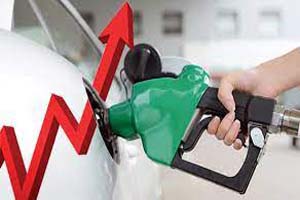
Fuel price jacked up
Trade and industry leaders have slammed the government for increasing the petrol and diesel rates by a whopping Rs30 per litre which will not only multiply the woes of already inflation-hit masses but will also push up the cost of production. They said the government bowed to the IMF pressure to withdraw the fuel and power subsidies for releasing a $1bn tranche to pull the country from an economic meltdown. Businessmen anticipated a jump in production cost by 5-7pc due to the petroleum price hike which will have a multiplier impact on the retail prices of goods which would make the life of the masses more miserable due to the rising cost of living. The jump of Rs30 per litre in petrol and diesel will be difficult for the people and the industry to absorb.
|
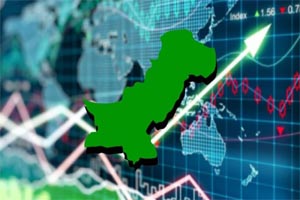
ICT exports up 29pc in 10 months
Information and Communication Technology (ICT) exports rose by 29.29 per cent to $2.198 billion during the first 10 months of this year from $1.7bn over the corresponding period last year. According to a statement issued the Ministry of Information Technology, the ICT exports, including telecommunication, computer and information services, are expected to see further growth in the coming months. In April this year, the ICT export proceeds stood at $249 million, a growth 29.02pc, compared to $193m recorded during the same month last year. However, the export proceeds saw a decline of $11m during the month under review when compared with the previous month’s $260m.The net exports during the July-April period of FY22 stood at $1.665bn, which is 75.75pc of $2.198bn in ICT exports. During the same period last year, the net exports were $1.274bn, which was 74.94pc of $1.7bn in ICT exports.
|
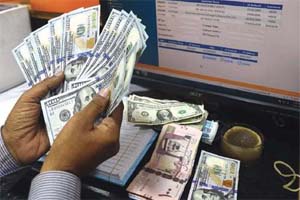
FDI falls 1.6pc to $1.45bn in 10 months of current fiscal
Foreign Direct Investment (FDI) in the first 10 months of 2021-22 went down 1.6 per cent on a year-on-year basis to $1.45 billion, according to data released by the State Bank of Pakistan (SBP). The inflow in April alone was $170.6 million, almost unchanged from a year ago. The FDI inflow registered no change over the past year despite the weakening in the external account. A record-high trade deficit, gap in the current account and a steep fall in the value of the local currency against the dollar and other major currencies have contributed to the weakening of the country’s external sector. These negative developments seem to have discouraged foreign investors from taking the risk of bigger investments in Pakistan. However, the overall level of FDI inflows did not take a hit. A major decline was noted in the inflows from China, which decreased 49.1pc on a year-on-year basis to $355.8m in July-April. China is the biggest trade partner of Pakistan. The net inflow from the United States increased 98.2pc year-on-year to $223m in the same 10-month period. FDI from Hong Kong did not show any change. Pakistan received $134m from the Asian country, which is slightly higher than $127m it attracted in the same period of the preceding fiscal year. Inflows from Switzerland and the United Arab Emirates amounted to $119.8m and $118m, respectively, during the period under review. Experts believe that uncertainty on the political front can hurt FDI inflows in coming months.
|
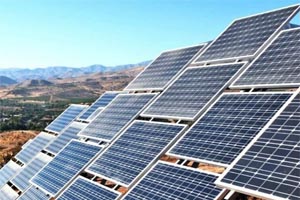
17pc General Sales Tax on solar panels removed
In a move to encourage power generation through alternative energy sources, Prime Minister announced removal of 17 per cent general sales tax on solar panels imposed by the previous PTI government, claiming that it is only way forward to reduce the country’s oil import bill that stood at $20 billion amid the fast rising prices of the US currency that has crossed the barrier of Rs200. The announcement from the premier came during his meeting with Karachi industrialists and businessmen at CM House to discuss “key issues of economy” and “suggest measures to meet the current challenges” that has crippled the country’s financial system and put the new PML-N-led coalition government at the crossroads. After almost half-an-hour address, PM Sharif invited proposals and questions from the businessmen that led to immediate orders on few and promises of review on others. “Announcing the immediate abolition of 17pc duty on solar panels, the prime minister stressed the need for a compulsory solar geyser policy for every household,” said a statement issued by the PM House after the meeting. It quoted PM Sharif as saying: “Currently, Pakistan’s oil import bill stood at $20bn, which could only be reduced by promoting green energy. The country has huge potential of alternative energy resources in Sindh and Balochistan areas as well as Bahawalpur.”
|
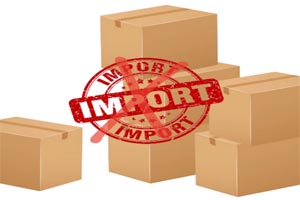
Ban on luxury items’ import to benefit country: PM
The federal cabinet on banned import of around 41 items for two months to forestall a looming default but the measure appears to be too little, as it would contain the import bill by hardly $600 million or less than 5% of projected imports. The decision will hit the imports of cars, mobile phones, cosmetics, cigarettes, food products, certain garments and toiletries. The federal cabinet approved the summary to ban the imports through circulation after a series of meetings held at the Ministry of Finance and Prime Minister Office. “My decision to ban import of luxury items will save the country precious foreign exchange. We will practice austerity and financially stronger people must lead in this effort so that the less privileged among us do not have to bear this burden inflicted on them by the previous government,” PM tweeted. He further stated that together “we will overcome all the challenges with resolve and determination”. It is the first major policy decision that the coalition government has taken, which will now pass through the scrutiny of the World Trade Organization (WTO) and the International Monetary Fund. The WTO encourages member countries to keep international trade open but allows temporary restrictions under certain circumstances including stalling a balance of payments crisis. Import of the items have been prohibited to support the balance of payments position, according to the cabinet decision. It decided that the prohibition will not apply on the imports in rupees or through barter mechanism by land routes.
|
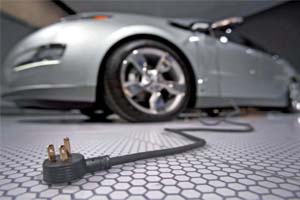
Chinese group to set up EV plant
China-based Gauss Auto Group on 20th May announced plans to establish an electric vehicle (EV) manufacturing plant in Pakistan’s Special Economic Zone (SEZ). It plans to enter into a joint venture with AKD Group Holdings and set up the plant near Port Qasim, Karachi on around 1,000 acres of land, said a press release issued by the Board of Investment (BOI). Gauss Auto focuses on innovation and development of automobiles as well as integration of resources. It is registered in the Silicon Valley, California and operates in Shanghai, China. A delegation, led by Gauss Auto CEO Chen Feng and AKD Group CEO Nasir Rizwan, visited the BOI and held a comprehensive meeting with Federal Minister for Board of Investment and BOI Secretary. The delegation highlighted their intention to export locally produced EVs to other countries. A presentation was given about the group’s production plant and the vehicle variants it was already producing.
|
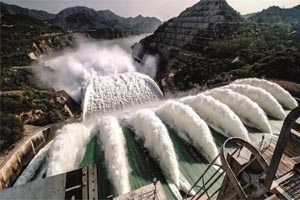
First CPEC hydro project starts trial operation
The first hydropower project under the China-Pakistan Economic Corridor (CPEC) – 720MW Karot Hydropower Project (HPP) – has started trial operations after two of its four units/turbines began power generation of 360MW on a test-run basis. The unofficial commercial operation of the project (power generation by all four units) will begin by June 25 when the third and fourth units would also start trial operation in the coming days, paving the way for its inauguration in June. “The third unit will also start running within the next 10 days or so,” an official source in the Private Power Infrastructure Board (PPIB) told. “The fourth unit would also be put under trial operation by June 15. All the units would start an unofficial commercial operation by June 25,” he added. It may be mentioned that the Karot project was earlier scheduled to complete by August. However, completion of various phases at a fast pace enabled the project team to complete it by June 30—two months before the timeline. At present, all works of the project, including most tests of the turbines, have been completed. The water filling of the pond was complete already. The work related to the laying of the transmission line for evacuating power, transmitting and adding it into the national grid for supply to the distribution system was already done. The project is being constructed on the river Jhelum at the dual boundary of Rawalpindi, Punjab and Kotli, Azad Jammu & Kashmir (AJK). It is being executed by China Three Gorges-CWE Investment Corporation, a leading Chinese firm, which is incorporated and registered in Pakistan as the Karot Power Company Limited. The project is the first of the three CPEC’s hydropower projects, which will start power generation before its actual deadline. The other two projects are 870MW Sukki Kenari HPP and 1,124MW Kohala HPP.
|
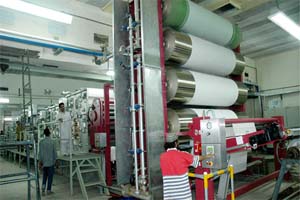
Textile exports jump 26pc to $16bn in July-April
Exports of textile and clothing grew 25.96 per cent year-on-year to $15.98 billion in the first 10 months of this fiscal year on the back of a massive rupee depreciation and a steady rise in global demand. The textile and clothing exports grew 30.50pc year-on-year in April, showed data released by the Pakistan Bureau of Statistics (PBS). The ready-made garment exports jumped 27.95pc in value and 41.09pc in quantity during July-April 2021-22, while the export of knitwear soared 35.14pc in value but dipped 2.64pc in terms of quantity. Bedwear exports grew 19.01pc in value and 13.43pc in quantity. Towel exports were up by 19.46pc in value and 5.16pc in quantity, whereas those of cotton cloth rose by 26.81pc in value and 7.14pc in quantity. Among primary commodities, cotton yarn exports increased 22.11pc and those of yarn made from material other than cotton increased by 100pc. The exports of made up articles excluding towels rose by 13.08pc, while those of tents, canvas and tarpaulin dipped by 4.62pc during the period under review. The export of art, silk and synthetic textile increased by 27.73pc during the months under review. For bridging the shortfall in the domestic sector, the industry impo¬rted raw cotton in July-April value of which posted an increase of 19.15pc, while the import value of synthetic fibre posted a growth of 25.92pc, followed by the import of synthetic and artificial silk yarn 27.15pc during the months under review.
|
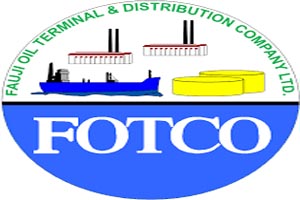
The blame game of port constraints
Port constraints kept the key players of the oil industry on tenterhooks for the past few weeks. They operated under strict government and regulatory instructions to ensure storage remain topped up with petrol and diesel and retail outlets stayed liquid without fail. On the other hand, the fuel stocks at the power stations had to be replenished continuously to make up for LNG and water shortages amid the unusually earlier arrival of summer. The port authorities, particularly the dedicated-for-oil Fauji Oil Terminal Company (Fotco), the oil industry and the petroleum division agree that oil operations are hampered by various constraints at ports but pass the buck to each other. The oil industry blames Fotco for lack of investment, poor infrastructure facilities and cargo handling. Fotco faults the oil industry and the petroleum division for product testing facilities and not following the given cargo sizes. All of them agree on efforts to address the bottlenecks and port congestion to cut losses, avoid product shortages and save foreign exchange on account of penalties and demurrages and yet take years to implement the steps they agree upon. Early this month, the ministries of energy and industries also agreed to examine the berthing of oil vessels and their quality testing at the jetty of Pakistan Steel Mills, currently abandoned for well over seven years, to reduce overall turnaround time and opportunity loss. Last week, the petroleum division’s testing arm Hydrocarbon Development Institute of Pakistan (HDIP) and Fotco also agreed to start quality testing and sampling at outer anchorage with effect to save time. Both OCAC and Fotco agree on the urgent need to commence dredging for alternate navigation channels to facilitate the entry and exit of the increasing number of vessels and save considerable time. There is also a general agreement on a joint special committee composed of all relevant stakeholders to devise and implement a strategy for an urgent resolution to Fotco’s challenges given the fact that since the inception of the port in 1995, investments for infrastructure enhancements have not been made despite substantial returns.
|
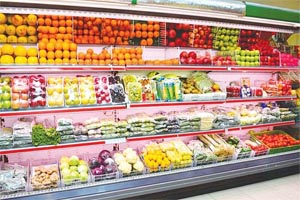
Eatables, energy import bill surges to $24.77bn
Pakistan’s oil and eatable import bill surged by 58.98 per cent to $24.77 billion in the July-April period compared to $15.58bn in the corresponding period last year owing to higher international prices and a massive depreciation of the rupee. The country’s overall import bill increased by 46.51pc to $65.53bn in 10MFY22 compared to $44.73bn in the corresponding period last year. The share of these products in the total import bill also rose to 37.79pc in 10MFY22. The steady increase in these two sectors’ import bills is causing a trade deficit and putting pressure on the government’s external side. Data released by the Pakistan Bureau of Statistics showed that the import bill of oil increased by over 95.84pc to $17.03bn in 10MFY22 from $8.69bn over the corresponding months of last year. Also, an unprecedented increase in the prices of petroleum products for domestic users was seen during the period.
|
|

© 2022 Alpine Marine Services Private Limited
all rights reserved
|
|
|